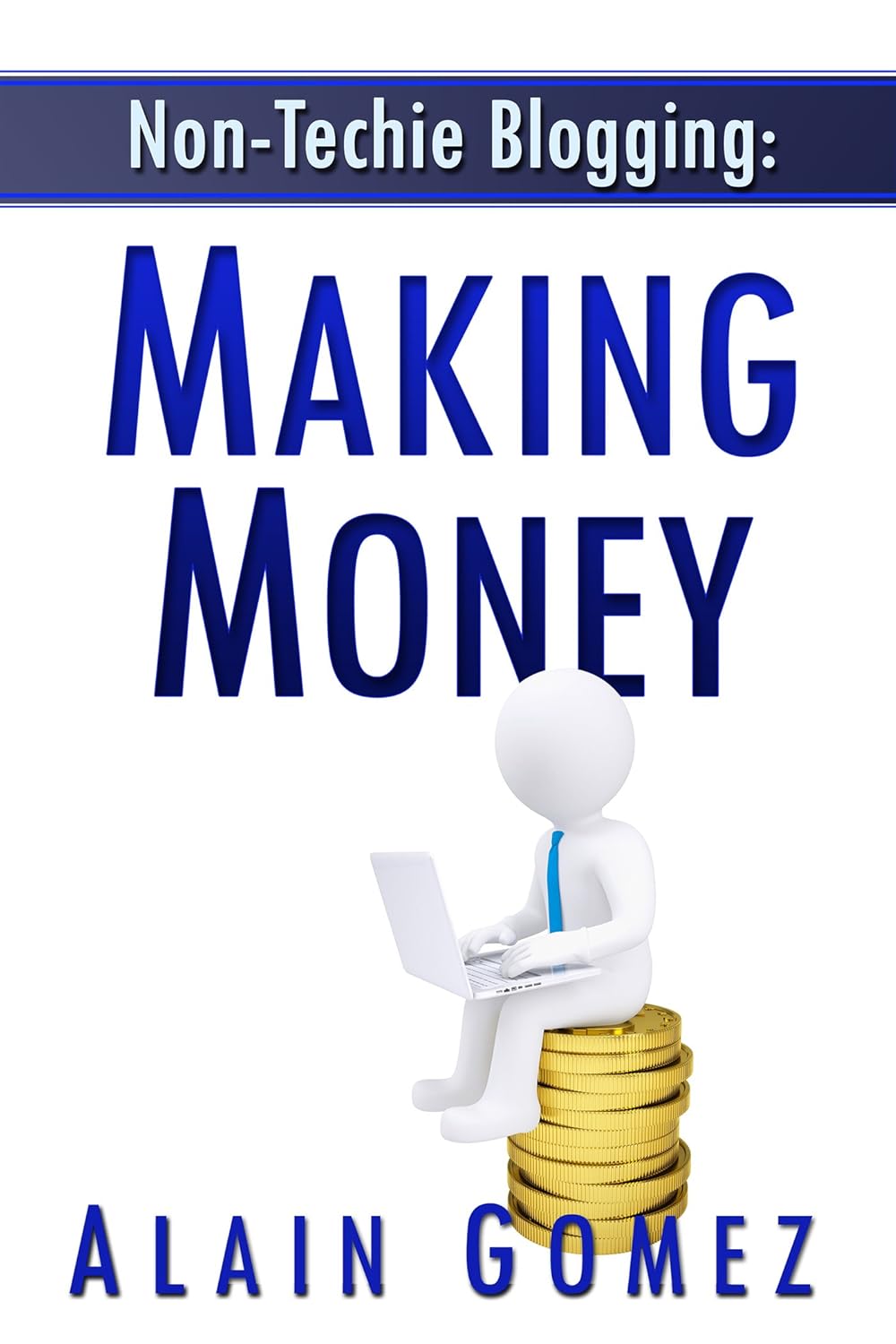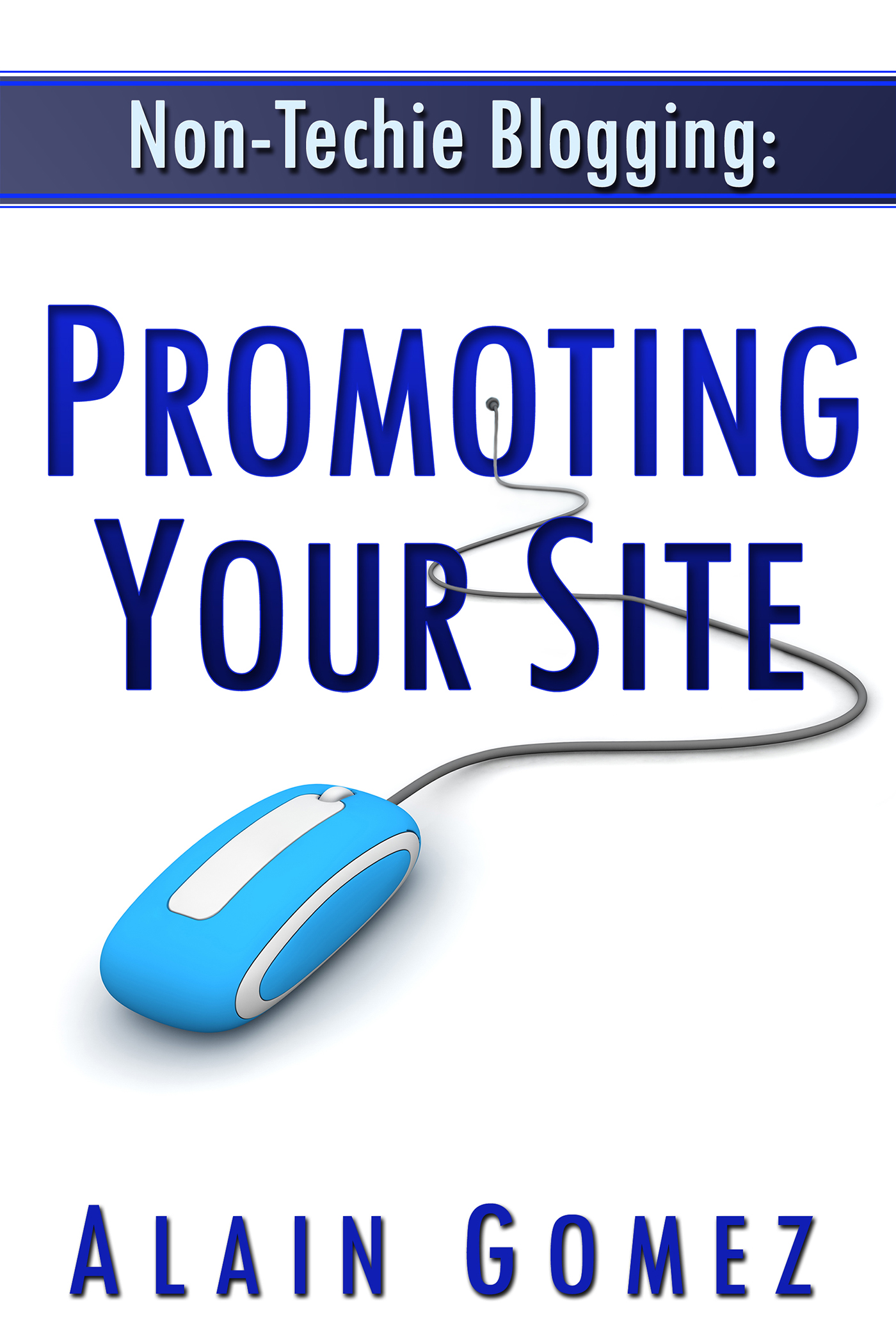Available for $1.99 on:
Amazon
Apple - coming soon!
Barnes and Noble
Kobo - coming soon!
Smashwords
A short guide on money making strategies for those that know next to nothing about blogging. This manual will give an overview on the groundwork needed to turn a blogging hobby into a source of income.
This manual is approximately 4,000 words.
Non-Techie Blogging
Simple tips and tricks for effective blogging.
Monday, September 1, 2014
Monday, August 4, 2014
How to Get Blog Traffic: Using Google+
Google+, I feel, came just a little too late to the game. The interface is so simple yet with Facebook still dominating the social media scene, it came in like a light drizzle rather than by storm. Still, Google has more than enough money to keep it running until it catches on. And I have to say that it has improved greatly over these past few years.
As a blogger, the best thing about G+ is that it's easy to connect with people. Also, if you already have a Blogger blog, you can activate your G+ profile in just a few painless steps. In other words, it's a resource that's already there.
There are two things that make Google+ useful for generating blog traffic. The first and most obvious thing is that it's easy to share your blog posts on. Anyone with a Blogger blog can just click "+1" and it's sent over. Most other free blog hosts have also integrated those +1 sharing buttons. In this sense, it's not too different from Facebook. It's just a different crowd.
The second more subtle thing is that there is this feature called "circles." You find groups ("circles") that are centered around your areas of interest and then Google+ will eventually recommend other groups based on what groups the people in your group belong to.... that that even makes sense.
Point being: it's a useful way to connect with people.
Google+ is somewhere in between Facebook, LinkedIn and Twitter. It has the ease of sharing like Facebook has but it's more encouraging for you to befriend strangers there (by allowing you to categorize friends). So it has Twitter's feeling of "friending" everyone but allows you to have deeper conversations due to the lack of 140 character restrictions put on Tweets. And it focuses more on articles rather than statues like LinkedIn but it lacks that professional atmosphere.
So it's not a bad tool to use. In fact, if you get really involved in some of your circles it's a great way to attract people to your blogs since it's easy to list links in your profile.
As a blogger, the best thing about G+ is that it's easy to connect with people. Also, if you already have a Blogger blog, you can activate your G+ profile in just a few painless steps. In other words, it's a resource that's already there.
There are two things that make Google+ useful for generating blog traffic. The first and most obvious thing is that it's easy to share your blog posts on. Anyone with a Blogger blog can just click "+1" and it's sent over. Most other free blog hosts have also integrated those +1 sharing buttons. In this sense, it's not too different from Facebook. It's just a different crowd.
The second more subtle thing is that there is this feature called "circles." You find groups ("circles") that are centered around your areas of interest and then Google+ will eventually recommend other groups based on what groups the people in your group belong to.... that that even makes sense.
Point being: it's a useful way to connect with people.
Google+ is somewhere in between Facebook, LinkedIn and Twitter. It has the ease of sharing like Facebook has but it's more encouraging for you to befriend strangers there (by allowing you to categorize friends). So it has Twitter's feeling of "friending" everyone but allows you to have deeper conversations due to the lack of 140 character restrictions put on Tweets. And it focuses more on articles rather than statues like LinkedIn but it lacks that professional atmosphere.
So it's not a bad tool to use. In fact, if you get really involved in some of your circles it's a great way to attract people to your blogs since it's easy to list links in your profile.
Monday, May 5, 2014
Paid Promotions
Promoting a site is time consuming. The very second a blogger realizes this the
first inclination is to go out and search for some form of paid promotion. In other words, go to Google or Facebook or
some big website related to the topic you write about and pay the site money
for advertisement space. The logic being
that the $100 you spent (or however much) would be worth it if thousands of
people saw a link to your blog.
Save your money.
When you pay for ads on places like Google you choose if you
want to pay per impressions (you pay a fee for every 1,000 people that the ad
appears to) or pay per click (you pay a fee for ever person that clicks on the
link in the ad). Does this work? Yes in that you’ll get some impressions and
clicks. But this is not how effective advertising works.
Here’s my go-to reality check: when was the last time I clicked on an ad’s link and
immediately bought whatever the ad was selling?
Speaking for myself, I can safely say I’ve never purchased anything
after clicking on an ad. Sure, I’ve
clicked if the site looked like something that interested me. But after quickly scrolling through I leave
and the site is forgotten.
As I mentioned earlier, there are short-term and long-term
aspects to promotion. The short-term
aspect of paid advertising is getting that click or impression. But this is not what makes the “sale”
(becoming a loyal reader of your blog).
Advertising is a long-term investment.
Large companies such as Coca-Cola understand this concept and it’s why
they still invest millions of dollars every year to continue marketing what is
already a world-recognized brand name.
Advertising keeps the brand fresh in everyone’s mind. The company doesn’t care if you immediately
go out and buy their soda. But what they
do care about is when you are in the
mood for a soda you associate their brand with quality because you are familiar
with the label.
Translating this over to your blog… clicking on a random
blog’s link once and scrolling through is not going to create a rabid fan. Think long-term. You need to have a system in place that
allows your target audience to continually be exposed to your brand name
(a.k.a. your blog). The reason why paid
advertising works for huge companies is because they have the budget to really
make it effective. Unless you have a
budge to be equally effective it is far better save your money.
Monday, April 7, 2014
Non-Techie Blogging: Promoting Your Site
Available for $1.99 on:
Amazon
Apple
Barnes and Noble
Kobo
Smashwords
A short guide on promotion strategies for those that know next to nothing about blogging. This manual will give an overview on large-scale concepts that the average non-blogger does not know but needs to understand in order to successfully promote a website.
This manual is approximately 5,000 words.
Amazon
Apple
Barnes and Noble
Kobo
Smashwords
This manual is approximately 5,000 words.
Monday, March 3, 2014
Monday, February 3, 2014
How To Get Blog Traffic: Using Facebook effectively
Facebook is one of the most useful tools for attracting blog traffic. For those that don't know, Facebook is a social networking site. Anyone over the age of thirteen can have a Facebook account. Users have personal profiles and can post "statuses" that your friends can see in the main area called the "news feed."
Facebook has mutated a few times since it first started. It is now much more blog/business friendly. In addition to your personal profile (which would contain personal information), users can now set up a "page." A page looks like a profile but it is for something other than you. In other words, Alain Gomez would be my personal profile where my friends could see me.
Under Alain Gomez I have started a page for Non-Techie Blogging: https://www.facebook.com/pages/Non-Techie-Blogging/248296061940076. The information you see on a page is strictly about the business. Nothing there is about my personal life but I can choose to interact with people "as" Non-Techie Blogging.
Facebook is useful because it provides a medium for announcing new blog posts to your friends and it allows you to connect with new readers without having to let them see personal family photos.
The key here is not to become spammy. If all you do is use your personal profile to announce blogs, your friends will start to ignore you. Just like how no one wants to hang out with someone that's always trying to sell people their old junk. But sprinkled here in there can provide huge traffic boosts. They are already your friends so they would already be that much more interested in seeing what you have to say on your blog.
A page specifically for your blog allows people to stay current on your latest posts. Unless you have the posts sent to an email account you check regularly, it is easy to forget to keep tabs on your favorite blogs. Most people who use Facebook enjoy browsing through the news feed. If they are following your blog's page, they will see updates for new posts.
Provided that your content is something people want to read, Facebook is an excellent and easy way to keep readers coming back to your blog. Maintaining a healthy blog is all about having a consistent readership.
Facebook has mutated a few times since it first started. It is now much more blog/business friendly. In addition to your personal profile (which would contain personal information), users can now set up a "page." A page looks like a profile but it is for something other than you. In other words, Alain Gomez would be my personal profile where my friends could see me.
Under Alain Gomez I have started a page for Non-Techie Blogging: https://www.facebook.com/pages/Non-Techie-Blogging/248296061940076. The information you see on a page is strictly about the business. Nothing there is about my personal life but I can choose to interact with people "as" Non-Techie Blogging.
Facebook is useful because it provides a medium for announcing new blog posts to your friends and it allows you to connect with new readers without having to let them see personal family photos.
The key here is not to become spammy. If all you do is use your personal profile to announce blogs, your friends will start to ignore you. Just like how no one wants to hang out with someone that's always trying to sell people their old junk. But sprinkled here in there can provide huge traffic boosts. They are already your friends so they would already be that much more interested in seeing what you have to say on your blog.
A page specifically for your blog allows people to stay current on your latest posts. Unless you have the posts sent to an email account you check regularly, it is easy to forget to keep tabs on your favorite blogs. Most people who use Facebook enjoy browsing through the news feed. If they are following your blog's page, they will see updates for new posts.
Provided that your content is something people want to read, Facebook is an excellent and easy way to keep readers coming back to your blog. Maintaining a healthy blog is all about having a consistent readership.
Monday, January 6, 2014
Subscribe to:
Posts (Atom)

